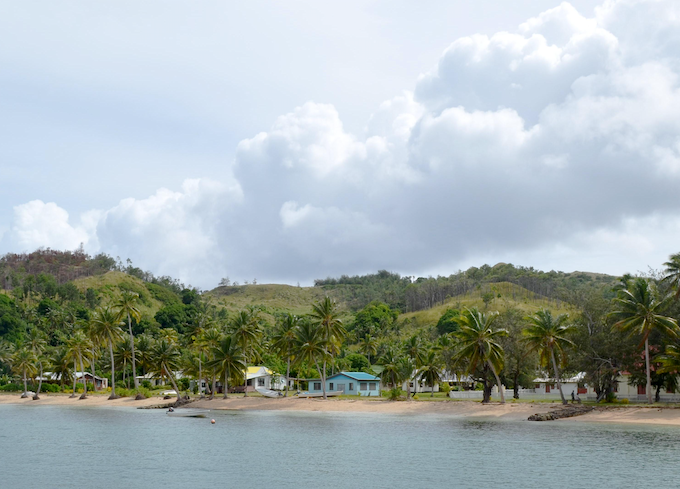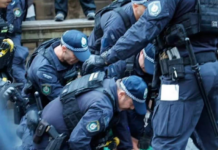
By Brooke Tindall, Queensland University of Technology
With more than 50 Fijian villages earmarked for potential relocation in the next five to 10 years due to the climate crisis, Fijian journalists are committing themselves to amplifying the voices of those who face the challenges of climate change in their everyday lives.
Vunidogoloa village on the island of Vanua Levu was home to 32 families who lived in 26 homes. As early as 2006, floods and erosion caused by both sea-level rise and increased rains started to reach homes and destroy crops that fed the community.
The situation worsened in the following years, with water progressively taking over the village. The mangroves that used to cover the coast where they lived were absorbed by the sea completely.
The Fijian government began the mission to relocate Vunidogoloa in 2014. Not only did people in the community walk away from their homes, they left the place where their traditions and stories were passed down. Since Vunidogoloa was relocated, five other Fijian villages have faced the same fate.
Several projects have been established in response to such pressing threats, with an aim to increase the amount of climate journalism in Fijian media.
University of the South Pacific journalism coordinator Associate Professor Shailendra Singh has previously expressed concern about the lack of specialisation in climate reporting in the Pacific and says the articles produced can often come from “privileged elite viewpoints”.
Dr Singh continues to harbour such concerns in 2024. He notes that Pacific news media organisations have small profit margins, so rather than face the expense of sending out teams to talk to everyday people, their stories tend to focus on presentations and speeches that are cheaper to cover.
“This refers to the plethora of meetings, conferences, and workshops where the experts do all the talking and presenting,” he says.
“Ordinary people in the face of climate change are suffering impacts and do not get as much coverage.”
Training journalists to specialise in climate reporting will give them an in-depth understanding of both talking to experts and ordinary people experiencing the effects of climate change, Dr Singh says.
Blessen Tom’s climate change ‘ghost’ village report on Vunidogoloa for Bearing Witness in 2016. Video: Pacific Media Centre
“It brings focus, consistency and knowledge if done on a regular basis. Science has its place, but let’s not forget that people dealing and living with the effects of climate change are experts in their own right.”
Up-and-coming journalists, USP students Brittany Nawaqatabu and Viliame Tawanakoro say they see it as a good journalists’ responsibility to prioritise climate stories.
“Journalism provides people with the opportunity to be the vessel of message to the world. We are the captain of the ship that delivers the message,” Viliame says.
Brittany criticises Western media that considers climate change as a “debatable” topic.
“You have to put yourself in the shoes of a Pacific Islander to know what it’s really like. You can’t be debating it because you’re not the one going through it,” she says.
It’s important for Fijian media to continue to put the climate crisis on the front page and not let the stories become lost in other news, she says.
“If we are not going to become strong advocates as Pacific islanders for climate change and what our island homes are going through, then it’s only going to go downhill.”
Brooke Tindall is a student journalist from the Queensland University of Technology who travelled to Fiji with the support of the Australian Government’s New Colombo Plan Mobility Programme. This is published as the first of a series under our Asia Pacific Journalism partnership with QUT Journalism.









































